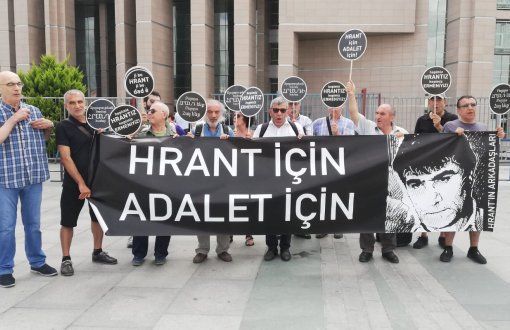“Will Corruption Recordings Count As Private Space?”


While Communications Minister announced that new omnibus bill will allow URL restrictions without court order if it concerned private life, advocate Ahi asked authorities: “What if it concerned public interest?”
Ahi: Bill is open to arbitrary practice
Reminding that widely-known people had a “narrower” private space compared to ordinary people, Ahi claimed that it didn’t make sense to mention private space if a bureaucrat was recorded as he was receiving bribe.
“Because there is public interest,” he continued.
“There is no way I can agree with the minister’s opinion. First of all, private space and its confidentiality depends on the person per se. While the actions of ordinary people on the street are within their private space, widely known people, politicians and bureaucrats have a narrower private space compared to ordinary people.
“As a principal, you don’t interrupt anybody’ private space even though they are widely-known. However, if there is a public concern at stake, such intervention might be possible.
“For instance, if a a bureaucrat is seen while taking bribe and it is recorded, there is no point to talk about private space. Because their is public interest.
“Such interventions on widely-known people is of course not with a sense of limitlessness. We can’t mention of public interest in bedrooms. According to the new omnibus bill, ministers will be able to approve or disapprove the restriction of web, visual or audio content related to private life. But what if it seeks public interest? This regulation, indeed, doesn’t at all seek public interest and it is very open to abuses.
Minister Elvan: There is no censorship
“The expression ‘protection of rights and freedoms of people’ is very wide. We will remove this. It will only concern private space. We will draft a regulation,” Communication Minister Elvan said.
“Let’s say that a citizen has been affected. S/He won’t have to wait for two days for content removal. They will be able to apply to the court for content restrictions. And the court will have to respond requests within 24 hours.
“This will only concern individual right abuses. As soon as the court will issue a ruling, service providers will be notified and the Union will warn all providers. The Union will serve to remove the content within 4 hours. No restriction is possible without a court order. Therefore, there is no censorship.”
However, several NGOs in Turkey (including Alternatif Bilişim Derneği, Korsan Parti and TMMOB Computer Engineers Chamber) raised their voices against the omnibus bill, saying that it would violate freedom of expression and internet freedom. (EA/BM)
Hrant’s Friends on Watch at 75th Hearing

2 People Released from Prison in Hrant Dink Case

Hrant’s Friends are at Justice Watch at 72nd Hearing

Afrin Resident Blames ‘FSA’, Habertürk TV Translates as ‘YPG’
.jpg)
7th Hearing in Cumhuriyet Trial
.jpg)






